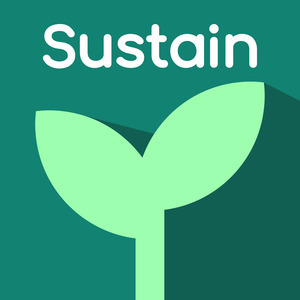Episode 10
Sustaining Unified with Titus Wormer
September 15th, 2019
48 mins 22 secs
About this Episode
Episode Summary
In this week's episode of Sustain Our software Titus Wormer joins the panel to discuss his experience maintaining Unified.js. Titus is built Unified and is working fulltime maintain Unified. He has a bachelor's in digital design and did his thesis on fixing natural language in wed design using syntax trees.
The panel takes a moment to talk about abstract syntax trees. Titus explains how abstract syntax trees help computers understand what is going on in human languages, helping programs like Babel and Google Translate.
Titus also does a lot of his work in markdown and the panel asks him why he started working in markdown. Most developers work in markdown and HTML explains Titus, plus markdown has some great tools. In opensource he needs a lot of Read Me’s so Titus built tools in markdown to check on his Read Me’s.
Moving on to the sustaining of Unified the panel asks Titus about the funding he is receiving for Unified. Titus explains a little about the setup of Unified and what goes into maintaining it. Unified has over 400 repositories on Github that need to be maintained, and as Unified gained popularity so did the amount of work needed to maintain the repositories. Titus shares how stressful it was to come home from his everyday paying job to find more and more requests piling up.
Titus decided they needed a change, so last November they started an open collective and looking for sponsors. Titus shares how easy it was asking his users for money and the amount of support they received. According to Titus, about 90% of their funding comes from large company sponsors. The panel discusses his experience in finding these companies and getting them to sponsor Unified.
The panel wonders how much time Titus spends fundraising. Titus explains what it was like when they first started the open collective. They were getting some funding but not enough to pay someone to work full time maintaining Unified, so they didn’t really know what to do with it.
The panel brings up an article about developers working for salaries under the poverty line because of the lack of sustaining funds for opensource projects. They consider specific projects and how much funding they receive annually.
Titus shares his opinion on this article. He believes people support what they see that they are using, big visible projects like Babel and Webpack receive tons of funding because not only do a lot of people use this software but they see that they are using it. He explains that smaller projects that are buried in a stack don’t get funding because they are less visible to their users. Relating this to Unified, Titus doesn’t think Unified fits into either category. Unified is a bunch of smaller modules but is advertised as one large monolith. Which is why they get as much funding as they do.
The Starbuck’s supply chain analogy is discussed by the panel. The analogy is this, farmers grow the coffee beans to make the coffee at Starbucks. While sitting Starbucks the coffee drinkers never think of the farmers that put all the work into the coffee just about Starbucks. Some opensource projects are the farmers, small and unrecognized while others are visible and renowned like Starbucks. The panel asks Titus about where he thinks Unified fits into this analogy.
Next, the panel discusses governance, asking Titus how he decides who gets the money. He explains that in people would help out, fixing things, and Titus would tell them to send in an invoice and that he would give them some of the money. Many of the people didn’t want the money, saying it was opensource and they were happy to donate their time. Titus then decided to try maintaining Unified fulltime and has been doing so since May. He explains all he does every day to maintain Unified.
“What’s next for unified?” is the next question the panel wants to be answered. Titus explains how they partnered with NDX and announced a new project called micro mark. He’s is hoping to finish up the new project by November when the money runs out. At which time he will need to find a real job or find other funding.
The episode ends with a discussion about what it’s like being a fulltime opensource maintainer. Titus explains that his current situation and the fact that the Netherlands has a safety net for its citizens making it less dangerous financially than it would be in the United States. Titus and the panel explore the idea of Titus being a contractor for unified as a way of making money.
Panelists
-
Eric Berry
-
Richard Littauer
Guest
-
Titus Wormer
Sponsors
Links
Picks
Eric Berry:
Richard Littauer:
Titus Wormer:
-
Go for a walk more
